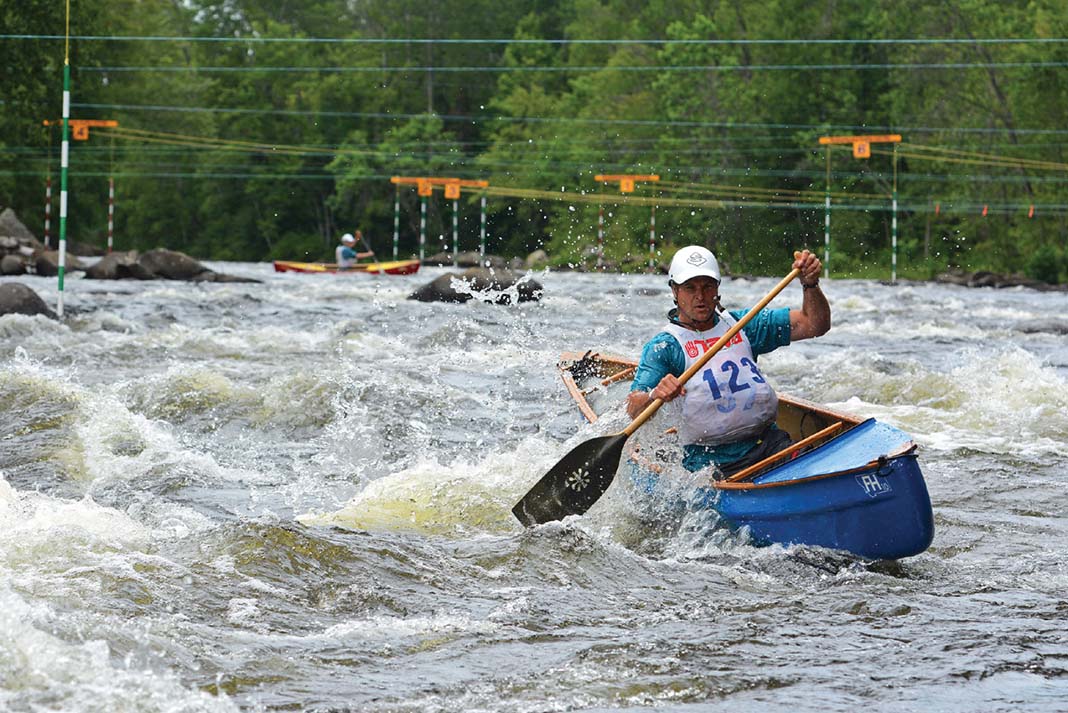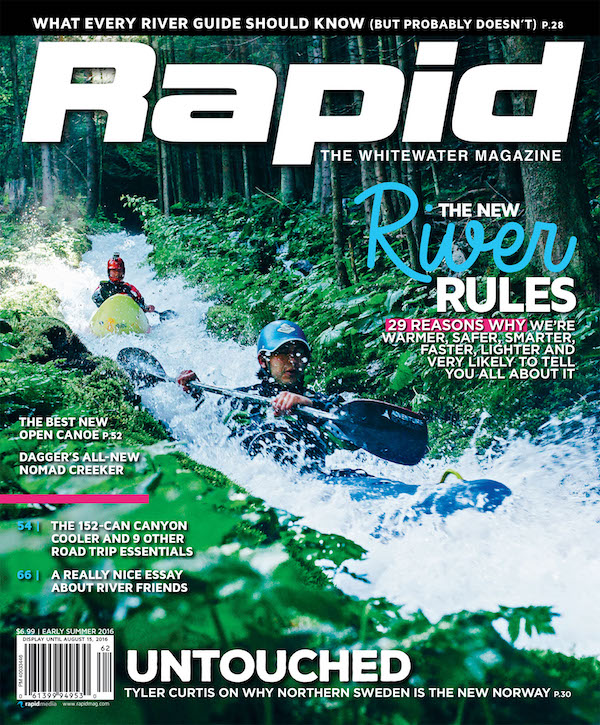When dam operators are receiving thank you notes from the paddlers downstream, something is awry.
Flowing east out of Algonquin Provincial Park, the Madawaska River is an Ontario whitewater hot spot, famous for being one of the best places in the country to learn to paddle. Thousands of boaters got their start on the mighty Mad and, with its friendly class II to technical class IV, it draws kayakers and canoeists year after year.
It’s here that one of Canada’s best-known paddling families has taken things to the next level in terms of cooperation with the provincial power company.
It may come as a surprise that celebrated slalom paddler Claudia Kerckhoff-Van Wijk, who owns and operates the Madawaska Kanu Centre (MKC) with her husband Dirk Van Wijk, speaks highly of the folks at Ontario Power Generation (OPG), who control the dam upstream.
Following in the footsteps of her parents, who started the paddling school in 1972, Kerckhoff-Van Wijk has fostered a unique relationship with OPG that’s helped build and sustain the area’s thriving whitewater industry.
When her parents emigrated from Germany to Canada and set up their school on the Madawaska, the patchy and inconsistent flow made it difficult to build a business that relied on the river. They approached OPG and asked if they could condense the necessary 26 hours of flow per week—the minimum requirement to fulfill sewage demands, hydro production and environmental needs—into just four days a week, from May to August, so the flow would be substantial enough for good paddling on those days.

OPG agreed, at no cost. “Sometimes very small changes in when a power company operates their dams can have huge economic and social benefits that really are just no skin off the power company’s back at all,” says Kevin Colburn, the national stewardship director of American Whitewater.
South of the border, Colburn works long and hard to negotiate releases with power companies to guarantee water for paddling communities and the river ecosystem. However, he says it’s unusual for things to go as smoothly as they have at MKC—more often than not, interests do not align.
Understanding all the stakeholders involved is key, says Kerckhoff-Van Wijk. From there, it’s a matter of clear negotiation and constant communication. It doesn’t hurt that in her case, the relationship has some history. “My parents were way ahead of the curve,” says Kerckhoff-Van Wijk. “There was less red tape and fewer parameters then, but it is still possible today if you listen, do research and share your resource.”
Kerckhoff-Van Wijk encourages her students to send the dam operators thank you notes after they’ve enjoyed their time on the Madawaska. An OPG employee confirmed they have a stash of emails from athletes, adventurers and vacationers alike thanking them for their cooperation with the whitewater community.
OPG has 240 dams in numerous communities in the province, each of which has its own management plan. “It’s a balancing act,” says OPG spokesperson Neal Kelly. “It’s an ongoing relationship we have with businesses, community members and elected officials in communities where we operate.”
Of course there are many factors that will determine whether an arrangement like this one will work. The stars have to align for such anarrangement to be struck, says Colburn. But the MKC deal is a promising precedent.
“If you don’t have that conversation about interests and what people want and need,”says Colburn, “than you’ll never figure out those easy wins where interests actually do align.”

Subscribe to Paddling Magazine and get 25 years of digital magazine archives including our legacy titles: Rapid, Adventure Kayak and Canoeroots.



